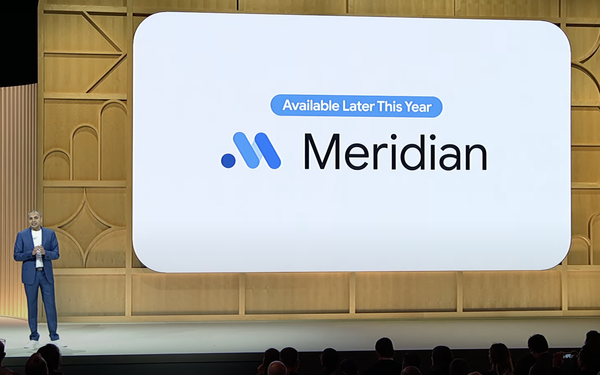by Joe Mandese @mp_joemandese
Source: www.mediapost.com, May 2024
As part of a much broader push into AI-powered data and analytics products aimed at the ad industry, Google today unveiled plans for a new marketing mix modeling platform that will be offered to advertisers and agencies later this year.
Precise details of the new platform, dubbed Meridian, were not disclosed, but during a presentation at the Google Marketing Live 2024 conference, Vice President-General Manager of Ads Measurement Gaurav Bhaya said it comes at a time when many marketers are backing off attribution models and re-embracing marketing mix models to deal with a rapidly expanding media channels universe.
“Given the increase in channels, a lot of marketers have been looking at marketing mix models,” he said, adding, “They’re having comeback, but need to be modernized.”
While he didn’t explicitly say Meridian would be AI-powered, the announcement came near the end of a conference in which Google announced how it was ramping up and integrating AI into almost every facet of marketing.
“We know some of you have been frustrated with your [marketing mix models] not accurately accounting for the digital channels,” Bhaya acknowledged, adding, “With that in mind, we are embarking on a journey to modernize [marketing mix modeling]. Meridian is our open source.”
He called Meridian a “first step” and said it would be available to all marketers this year.
For context, it is worth noting that marketing mix models revolutionized marketing — especially the value marketers attribute to media and the weight of advertising budgets they assign to it — when they first came into prominence in the early 1990s.
Even back then, and through recent times, such models were often criticized for being biased toward media that had strong data to model, especially television.
Another problem with mix models is they were based on regression models looking back over recent history, which created some latency in terms of adjusting media plans, and following the rise of digital media in the mix, many marketers and agencies shifted to real-time attribution models, including the kind of multitouch attribution models that Google’s Bhaya implied are not keeping pace with the proliferation and fragmentation of media.
“In some ways, what’s old is becoming new again and even better with AI,” he said.

